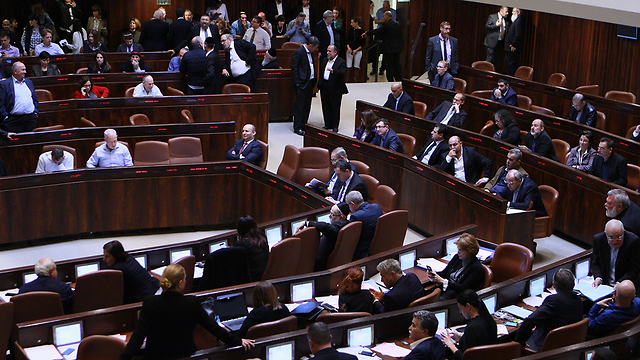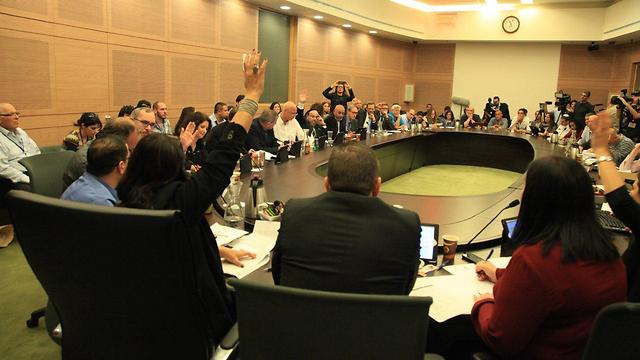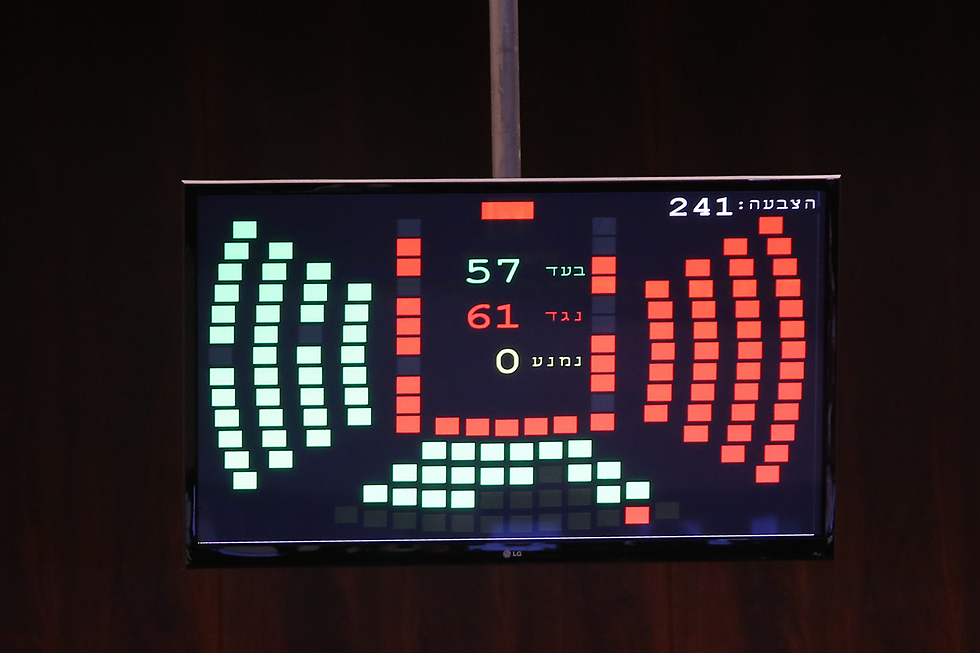Justice Minister Shaked and Tourism Minister Levin propose measures to cut down on private bill proposals and in return give the Knesset’s committees the authority to supervise ministry budgets and influence government agenda.
Justice Minister Ayelet Shaked and Tourism Minister Yariv Levin are working to increase Knesset supervision of the government and to limit the number of laws passed by the legislator, Ynet has learned.
Shaked has spoken in the past about the need to limit the amount of laws passed by the Israeli parliament, claiming that over-legislation hurts Israel’s economy, as well as its civil liberties.
Levin, who is also in charge of liaison between the Knesset and the government, has worked towards that end as well in previous terms, proposing a bill to increase the Knesset’s supervision authorities over government work.

The two have worked recently to formulate an extensive plan on the matter, which they then presented to Knesset Speaker Yuli Edelstein, who gave his support to the move and asked them to raise the issue with the different party leaders.
Shaked and Levin seek to limit private bill proposals, which are submitted by one MK or a group of legislators rather than the government. According to the initiative, each member of Knesset would be able to submit only four or five such proposals a year, a significant change to the current situation in which such proposals are not limited.
In addition, the number of bill proposals being discussed at the Ministerial Committee for Legislation will be cut down from 35-40 proposals per week to only 15. The Ministerial Committee for Legislation is where the coalition’s position on each bill is set, and the fate of these proposals is largely determined there.
The number of bill proposals being brought to the Knesset for a preliminary reading every year will be cut down as well, to 250 instead of about 750 that go up to a vote, with most being rejected.
But while the Knesset’s legislation quotas will be cut down significantly, its supervision over the government will be increased.
One move to that end is in changing the appeal procedure at the Ministerial Committee for Legislation. At present, when a bill is rejected, any minister can appeal the decision and is then required to defend the legislation to the committee. The new procedure would have ministers appeal the rejection of a bill with the help of the MK who originally submitted it, regardless of whether the MK is from the coalition or the opposition. That way, the MK could defend the legislation in the most clear and efficient manner.
In addition, the initiative seeks to apply “prejudgement” to more complex private bill proposals, such as the regulatory impact analysis (RIA), which is used to analyze government bill proposals. This would enable the MKs who submit the legislation to better understand the positions of the different government ministries on the matter, improve the proposal accordingly and to better prepare for discussions at the Minister Committee for Legislation. Such an analysis would be done at the discretion of the MK who submits the legislation.

Other significant changes are expected to be made to the work of the Knesset’s committees, whose supervision authority over the government’s work would increase.
One of the changes will require more representatives to appear in front of the committees, including from bodies under the supervision of the state comptroller, or ones supported by the state. At present, only state employees are required to appear in front of Knesset committees while others appear voluntarily.
In addition, the Knesset committees will be involved in setting the government’s agenda. A supermajority vote would be required to bring a topic for discussion at government meetings. Quotas will be set to that end.
The planned update to the process of appointing officials to senior positions was inspired by the American system. At present, the government receives a closed list (of internal candidates, set without issuing a public tender) for some positions. The new initiative calls for a parliamentary hearing for candidates on the closed list before the appointment reaches the government’s table.
The Knesset committees will also receive the authority to supervise ministers’ budgets. A committee responsible for a certain ministry will receive a performance report during the budgetary year to examine any deviations from the allocated budget. The minister will be required to appear in front of the committee and report on how his ministry manages its budget as well as explain reasons for any deviations.

“The inflation in legislation doesn’t serve the values of democracy, it betrays them. More legislation mean encumbrance, regulation and putting iron chains on civil liberties,” Justice Minister Shaked said.
“Our initiative seeks to ensure the important tool of legislation does not harm the individual citizen or democracy as a whole. To that end, we prepared an entire system of ‘give and take’ in which the legislator receives additional tools for his parliamentary work to supervise government work in return for the creation of a healthy balance,” she added.
Minister Levin noted that “giving suitable supervision tools to the Knesset will allow minimizing private bills, which are a direct result of a situation in which Knesset members don’t have sufficient expression or influence over government work, so left with no other choice, they focus their efforts on private legislation.”
As reported by Ynetnews
